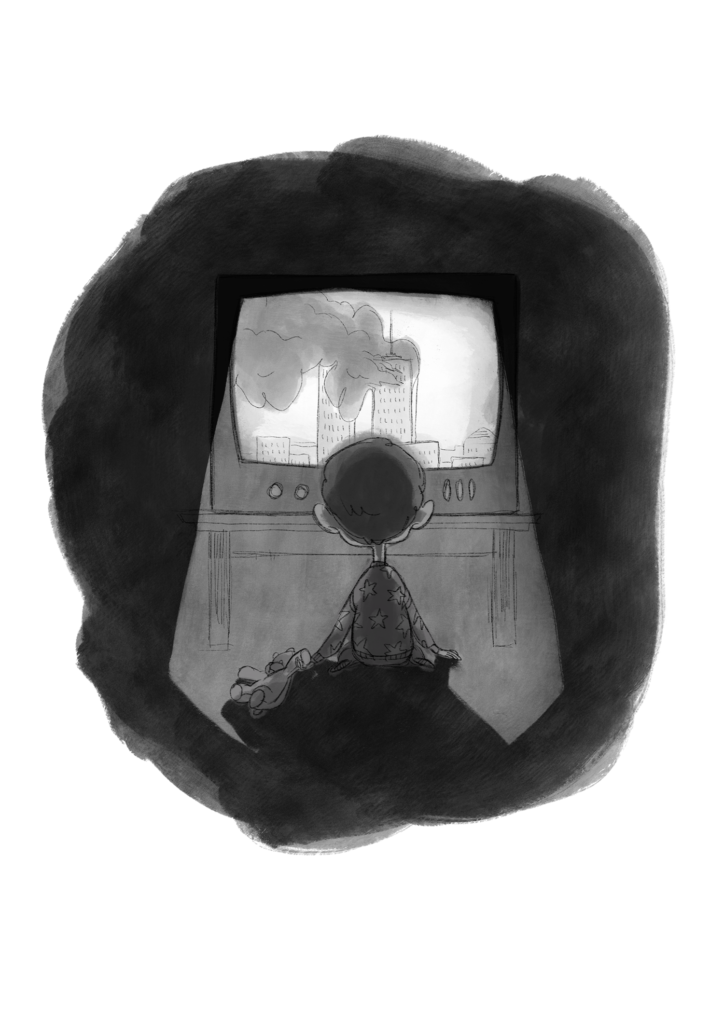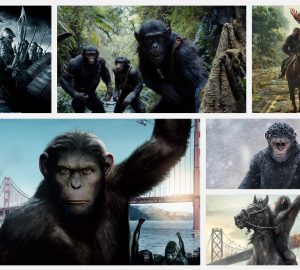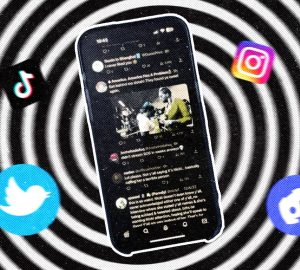Our generation, the proverbial “Generation Y” is right in between a paradigm shift. I was born in 1994. Things were pretty swell back then, all things considered. I had hermit crabs for pets at one point, I built sprawling multi-color towers out of Legos and I looked at the world and saw potential. We always heard the phrase, “the world is your oyster.” That’s what it felt like when I was a wee tot, like I could just hold the entire globe in the palm of my little, splotched hand and pick where I wanted to go, what I wanted to do, and most importantly, decide what I was going to change. Then 9/11 happened.

Everyone I know has a 9/11 story. Most of us were too young to remember details or truly grasp what was going on, but we were there for it in some way. All I really remember was getting up one morning, walking into the living room and seeing my mom in tears. On the TV, there were the Twin Towers crumbling, and anchors talking about bodies. I padded over in my sock feet, still drowsy and asked my mom what had happened.
Terror had happened. This time, it wasn’t just something happening in some far-away place that I stumbled across in a newspaper or overheard on the news while I made my GI-Joe’s draw up a peace treaty, it was here at home. Therefore, it felt hyper-real. As I grew up, there were but two sentiments echoed everywhere I looked. The first was, “It wasn’t supposed to happen to us.” When I saw the back of the magazine my mom tried to hide from me, the one with the towers on the front, and that famous image of the jumper on the back, falling in an eerie repose headfirst as the towers burned, I felt the second sentiment, the one that shapes us now — “We’re vulnerable.”
We all grew up in the looming shadow of 9/11. What that really means is, we grew up in an age of terror and fear, of vulnerability. We were always a little anxious about the possibility of another attack at home. We were jerked out of our little bubble and made to face the reality that we weren’t as invincible as we thought we were. This messed with our mentality in a major way.
In short, we went from being adventurous and outgoing little scamps, who felt as if they could take on the whole world, to feeling that in the shadows, some evil beast lurked with a knife or a gun leaving us helpless and afraid. We wanted to hang around home a little more, to lock the doors at dusk. We stopped seeing the world as beautiful and instead saw it as a hulking monstrosity that was going to crush us under its weight.
Now, what comes after us is a bit of a mystery. We’ve bordered on the edge of utter terror all of our lives, more now than ever, I think, with the almost daily bombings, shootings and tragedies that take place around the world. The kind of events that happen so often I’m almost ashamed to admit I don’t even feel all that shocked or surprised when I hear about them.
We’re getting to the point where terror is almost our second nature, but we aren’t totally there yet. Because for us, we can still remember the “before.” Now the question arises of just what all of this is going to mean for the next generation, the one that has only ever known the “after,” and is actually, potentially going to be raised on terror.
It’s already being proposed that we call them “homelanders.” Referring to them as this rather clunky, vintage feeling, controversial word is because their generation will be surrounded by the efforts of government organizations like Homeland Security to keep things secure, that they’ll be part of everyday life.
It also doubles to signify that the new generation will be more likely to stay near home, in everything they do, from actually choosing to just stay at home and stream TV instead of going out to see a movie to spending more time on social media rather than socializing like we did. Instead of still having that beautiful human stubbornness and belief that they can do anything, the homelanders will be a little more likely to set what they believe to be are realistic goals, honing certain innate skills, and pursuing the safest, least cluttered by variables route to ensure relative safety and financial security. This, as far as we know, isn’t an inherently a good or bad thing. It produces its own unique challenges and solutions like everything that came before it. We’ll handle it when we get there.
I can’t blame the brand new generation for being scared, for wanting to stay at home. They’re going to grow up in a world so filled with war and destruction, I earnestly believe it’ll be a miracle if they have a home left to return to by the time they’re the age we are now. There’s nothing we can do but welcome them to the world we (in some small part, admit it already) made a mess of with open arms and tears in our eyes as we say “Sorry, y’all,” and disappear forever.



























